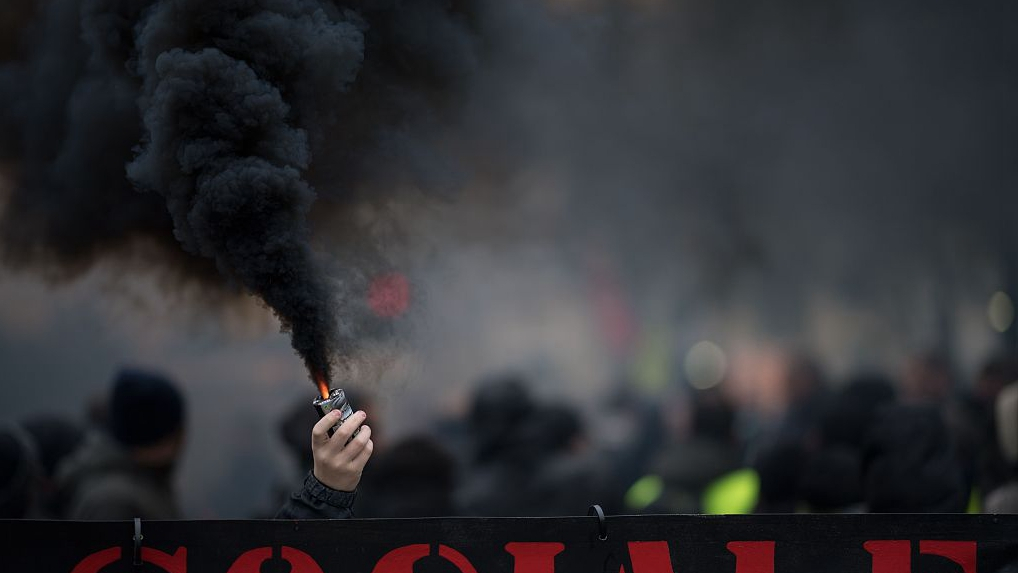
A demonstrator holds a smoke generator during a demonstration in Nantes, France, November 16, 2019. /VCG Photo
A demonstrator holds a smoke generator during a demonstration in Nantes, France, November 16, 2019. /VCG Photo
Tear gas and water cannons were back in the streets of France on the one-year anniversary of the "Yellow Vest" movement, as new anti-government protests raged in different parts of the world over the weekend. Here's a round-up:
Czech Republic
Around a quarter million Czechs rallied against the prime minister and president on Saturday in the deeply divided nation celebrating the 30th anniversary of the Velvet Revolution, which toppled the previous government of Czechoslovakia.
Organizers want Prime Minister Andrej Babis to sever ties to his Agrofert business, which they say represents a conflict of interest, or step down by the end of the year.
Babis faces a string of graft allegations and a conflict-of-interest probe by the European Commission centered on Agrofert, his sprawling farming, media and chemicals holding.
Babis has denied any wrongdoing and his ANO (YES) party still tops opinion polls with around 30 percent support despite the controversy.
The speakers, including former dissidents who spoke at the 1989 rallies, said Babis and President Milos Zeman were unfit for office. Police estimated the crowd at 200,000 while organizers pegged the turnout at 250,000.
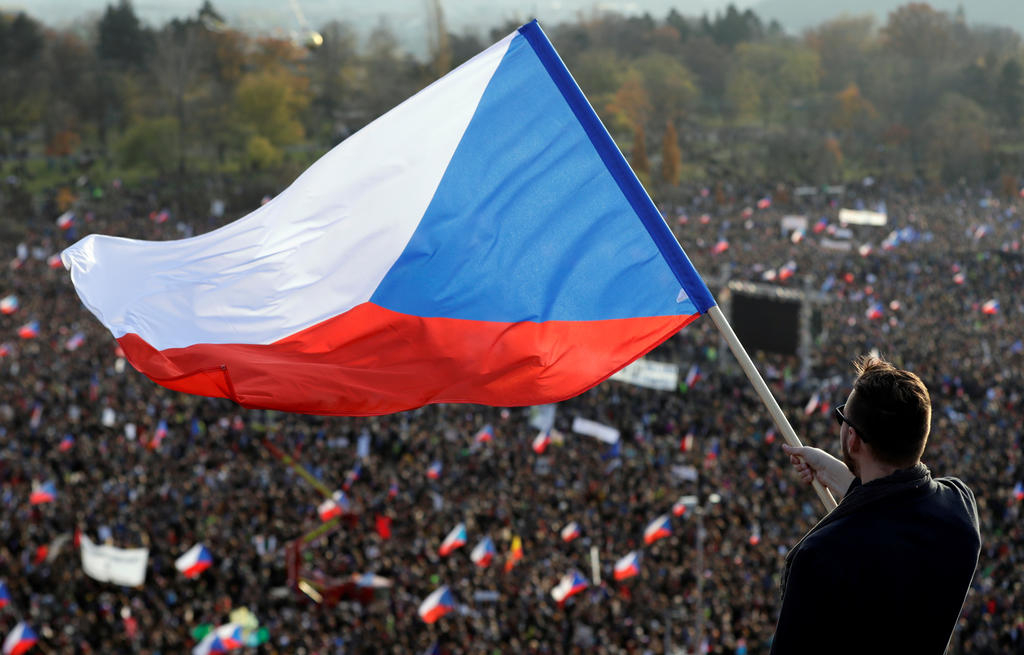
Anti-government protest in Prague. /Reuters Photo
Anti-government protest in Prague. /Reuters Photo
Bolivia
The fall of Latin America's longest-serving contemporary president added to a wave of unrest in the region after Bolivian President Evo Morales resigned under pressure from his country's police and military last Sunday and fled to Mexico.
The United Nations warned on Saturday violence in Bolivia could "spin out of control" following recent skirmishes between security forces and coca farmers loyal to Morales that left nine dead.
The leftist and charismatic former coca farmer has since called his ouster a right-wing "coup" and decried growing allegations of repression by security forces under interim the president and former conservative lawmaker Jeanine Anez.
Anez has blamed Morales for stoking violence from abroad, and has said her government wishes to hold elections and meet with the opposition to halt protests.
The violence in Bolivia adds to growing unrest in the region, including in neighbor Chile, where protests over social inequalities boiled over into riots that left at least 20 dead.
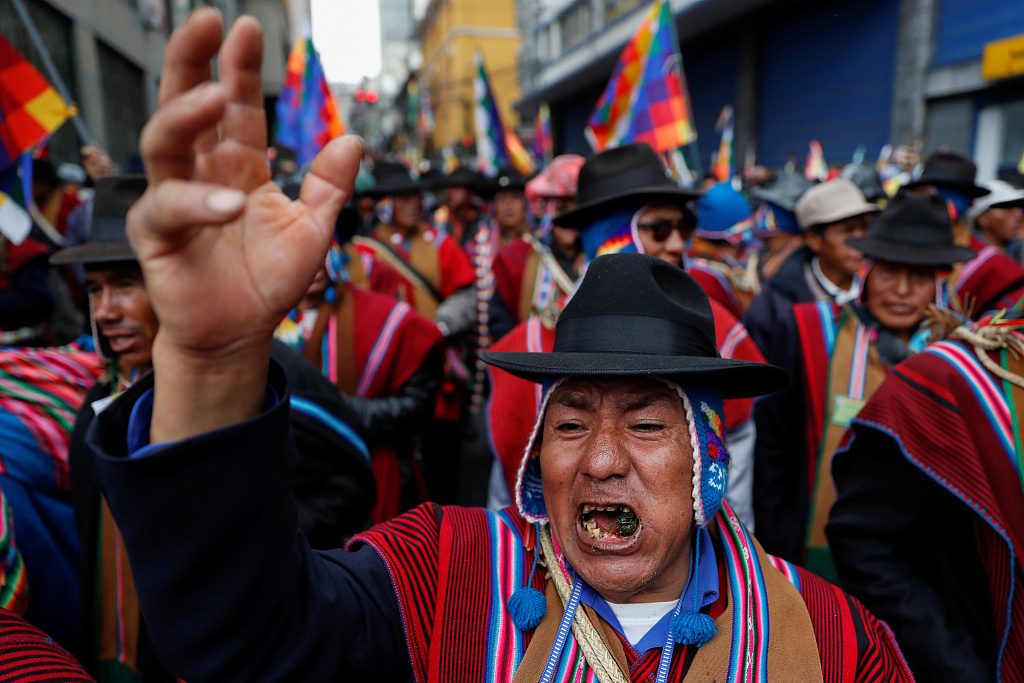
A supporter of former Bolivian President Evo Morales during a protest in La Paz, Bolivia, November 14, 2019. /VCG Photo
A supporter of former Bolivian President Evo Morales during a protest in La Paz, Bolivia, November 14, 2019. /VCG Photo
Iran
Riot police and security forces clashed with demonstrators in Tehran and dozens of cities across Iran on Saturday, as protests against a rise in gasoline prices turned political.
Reports said demonstrators chanted anti-government slogans around the country, a day after the government increased the price of regular gasoline to 15,000 rials (0.13 U.S. dollars) a liter from 10,000 rials and rationed it.
State television said police clashed with what it called rioters in some cities and fired teargas to disperse them.
One person was killed and several were wounded in the city of Sirjan in Kerman province on Friday.
Iranian Interior Minister Abdolreza Rahmani Fazli told state TV that security forces "have so far shown restraint" but will act to restore calm if the demonstrators "damaged public properties."
Many people in oil-producing Iran see cheap gasoline as a national right and the price hike sparked worries about a further squeeze on living costs, despite assurances from Iranian authorities that the revenue raised would be used to help needy families.
People's struggle to make ends meet has worsened since last year, when the United States pulled out of Iran's 2015 nuclear deal with six powers and re-imposed sanctions on the country.
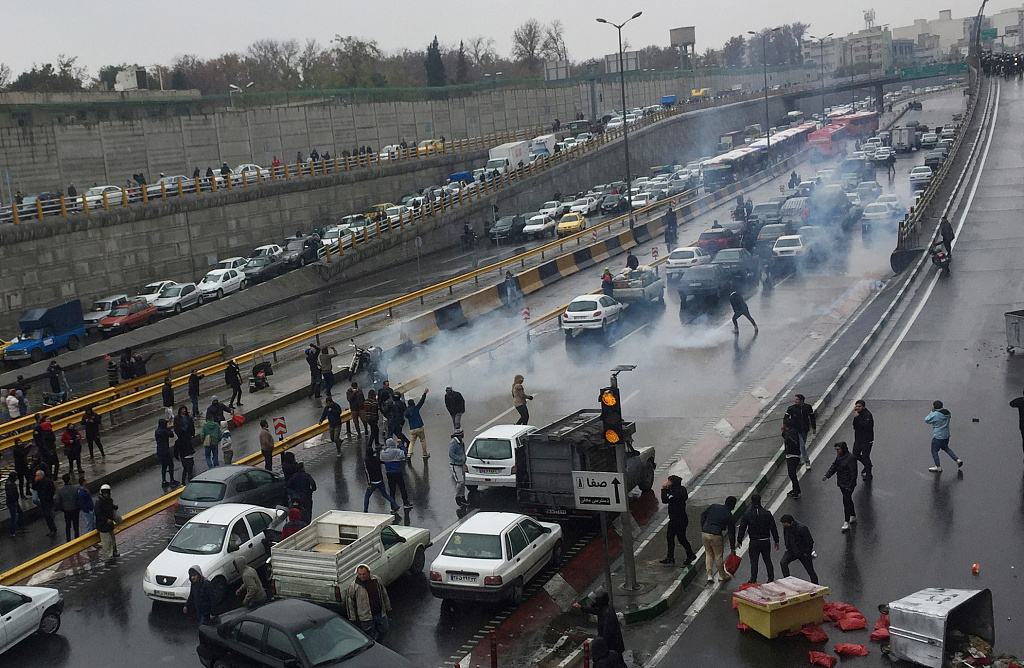
People protest against increased gas price on a highway in Tehran, Iran, November 16, 2019. /VCG Photo
People protest against increased gas price on a highway in Tehran, Iran, November 16, 2019. /VCG Photo
Iraq
Iraqi protesters occupied parts of a main bridge in Baghdad on Saturday that security forces had pushed them away from a week before, Reuters reported.
Demonstrators also occupied a tall building overlooking the bridge, taking new ground in the center of the Iraqi capital after protests had appeared to lose momentum.
A bomb blast at a nearby square during the night killed at least three people, police and medics said, but it was not immediately clear who was responsible or whether it was linked to demonstrations.
Iraq closed a southern border crossing with Iran to travelers on Saturday over unrest in both countries, a security official said.
More than 300 people have been killed during weeks of mass unrest in Baghdad and southern Iraq.
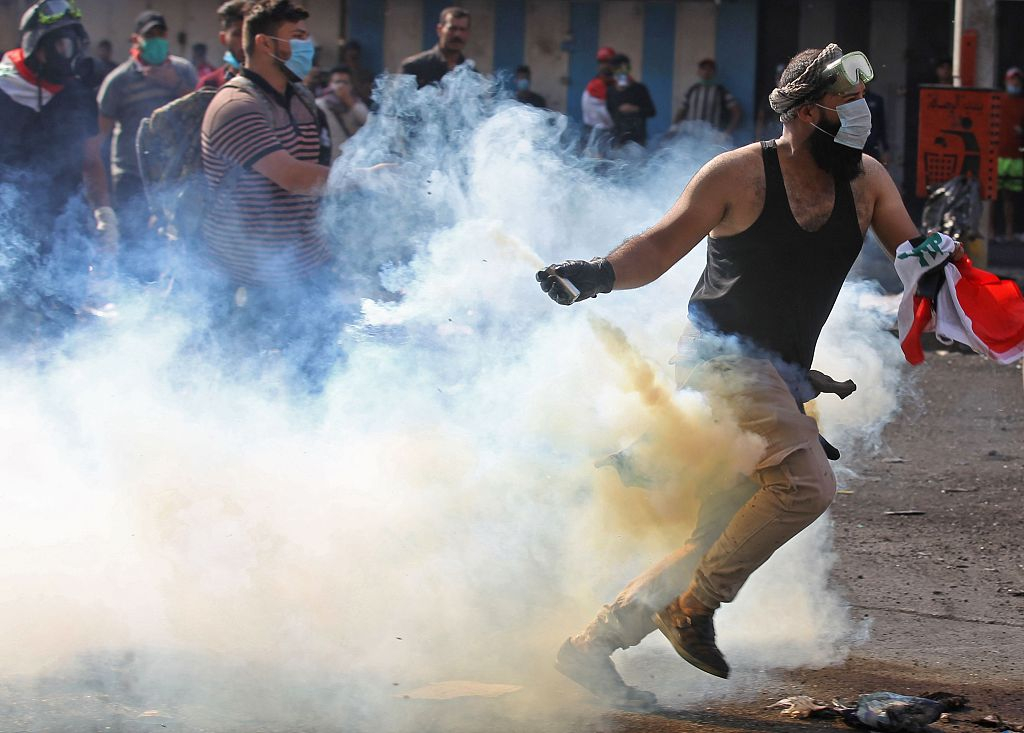
An Iraqi protester returns a tear gas canister fired by security forces amidst clashes in the capital Baghdad during ongoing anti-government demonstrations, November 15, 2019. /VCG Photo
An Iraqi protester returns a tear gas canister fired by security forces amidst clashes in the capital Baghdad during ongoing anti-government demonstrations, November 15, 2019. /VCG Photo
Demonstrators are now demanding the departure of Iraq's ruling class and an overhaul of the governance system that has fueled corruption since the toppling of Saddam Hussein in a U.S.-led invasion in 2003.
Demonstrators also decry what they see as foreign interference in the running of the country, including from the United States, but especially from Iran whose allies have dominated Iraqi state institutions since 2003.
(With input from agencies)